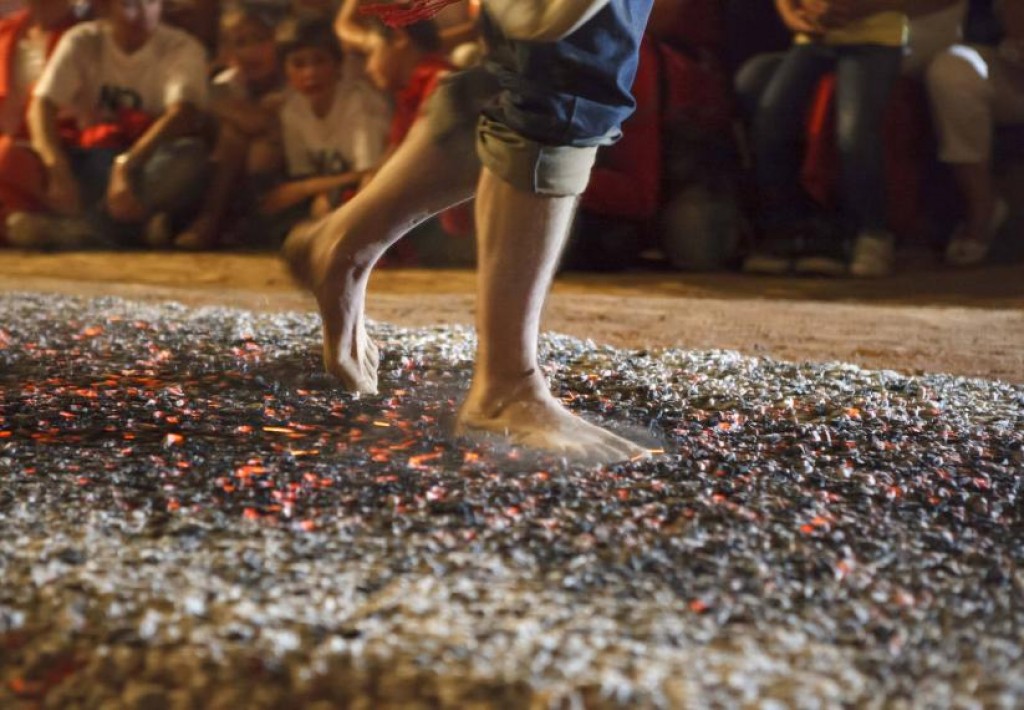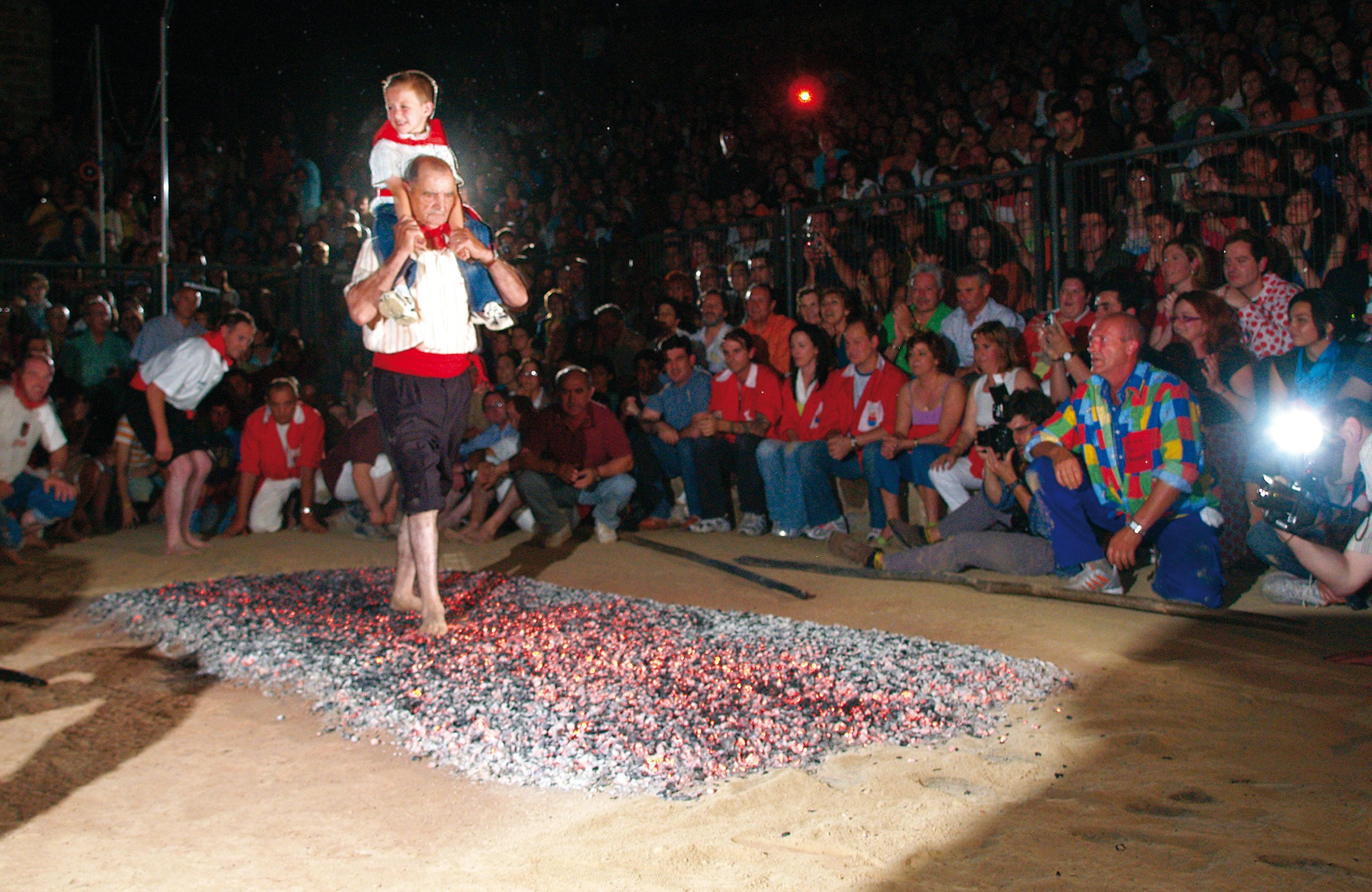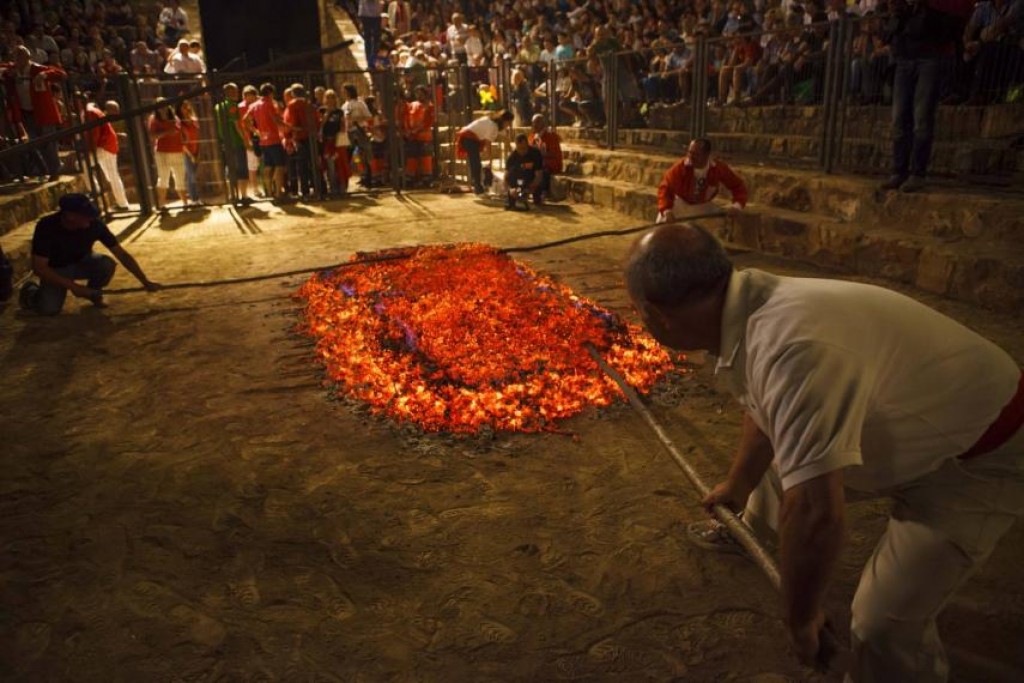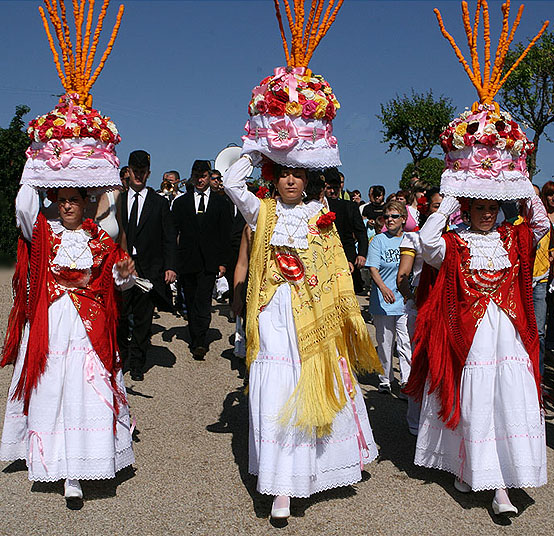Walking On Fire
Monday, August 7, 2023 @ 1:00 PM

In San Pedro de Manrique in Soria, It is said that only local townsfolk can complete the walk without being burned.
In this otherwise unknown village, two different celebrations take place during the Festival of San Juan. The famous ‘Paso del Fuego’ (Firewalking) on the eve of San Juan and that known as ‘Las Móndidas‘, on the 24th of June. Both of these festivals have been declared of National Tourist and Cultural Interest.

Each year on 23 June, on Midsummer night's eve, this ritual takes place and this year the celebration returned almost to normality. It consists of crossing the live coals of a meticulously prepared bonfire barefoot. The bonfire is lit at 9:00 at night with 2,000 kilos of oak wood, which burns easily and does not form lumps. At around 11:30, the carpet-like path of red-hot coals is prepared by smoothing them with poles called 'hoguneros'. Young men dance around the fire, and exactly at midnight, everything is ready to begin the walk across the coal carpet. Ten to twelve young men are chosen to do this, and they generally carry someone on their shoulders, since the extra weight avoids combustion. They try to ensure that the coals contain no ashes or hard objects; thanks to these precautions they never get burned.

Only inhabitants of San Pedro Manrique are permitted to pass over this burning carpet and do so accompanied by the fanfare of a trumpet. The ‘Móndidas’ (three local girls who play the role of priestesses) are the first to cross the embers but are carried on the backs of gallant young men after which any one of the neighbours may partake of this ancestral tradition. In the past, it was rare for women to participate but nowadays it is not unusual to see them enduring this ritual. The Móndidas, carrying wicker baskets and long breadsticks ("arbujuelos"), walk in a procession the following day. One of them, the most important one, offers the first "arbujuelo" to the priest.

Some people would say that this is a Celtic Rite others a purification rite and others a pagan sun and fire-worship but if you ask one of the "fire walkers" (or pasadores) about the origin of the festival, they will simply answer: “It has always been like this” Some people just follow their father’s or grandfather's footsteps, others just do it as a promise to the patron saint ‘Virgen de la Peña’, some just do it to prove themselves that they can do it... there are a lot of reasons, but for every man in this town, the Paso del Fuego is part of their identity.
You don't have to be registered to leave a comment but it's quicker and easier if you are (and you also can get notified by email when others comment on the post). Please Sign In or Register now.